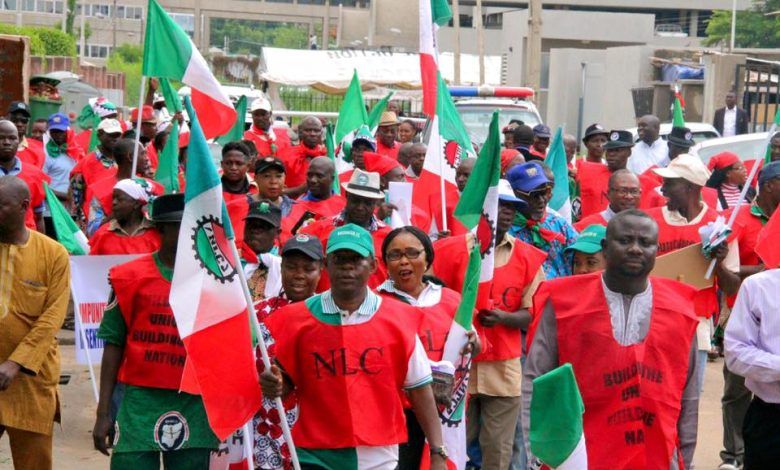
Tensions have escalated as workers in three states and the Federal Capital Territory (FCT) prepare to embark on strike action starting today, citing unresolved disputes over the implementation of the new minimum wage. The Nigeria Labour Congress (NLC) has issued a directive for its members to cease work in these areas after negotiations failed to produce acceptable agreements on the wage’s application.
The dispute primarily concerns the different approaches taken by state governments to implement the new minimum wage. The states involved Ebonyi, Nasarawa, Kaduna, and the FCT have announced specific figures for the wage, but there is confusion and dissatisfaction among workers due to a lack of agreement on how to apply these rates.
Ebonyi state has proposed a wage of N75,000 for Grade Levels 1-2, and N40,000 for Grade Levels 3-16, but workers have rejected the unilateral announcement, demanding proper consultation and adjustment.
Although Nassarawa state has verbally committed to a N70,500 minimum wage, workers are displeased with the absence of a formal written agreement outlining terms.
The Kaduna state government has begun paying the N72,000 minimum wage, but workers are protesting the lack of consequential adjustments to their salaries. The government, on the other hand, maintains that it has adhered to the National Minimum Wage Law.
in the FCT, Despite Minister Nyesom Wike’s approval of N70,000 for the Federal Capital Territory, workers in the six area councils report no progress in implementation, prompting their participation in the strike.
In addition to these states, there is ongoing uncertainty in other regions. While Sokoto and Imo have not joined the strike, citing progress in negotiations and agreements, several other states are either negotiating or awaiting final resolutions on the new wage implementation.
Meanwhile, Kaduna workers are set to begin a one-week warning strike today, with their local union leaders accusing the state government of failing to implement the necessary adjustments. State government officials defend the action, arguing that fiscal constraints prevent the additional adjustments requested by labor unions.
The TUC in Kaduna also criticized the government’s unilateral move, stating that any adjustment to the minimum wage should have been the result of collective bargaining.
In Ebonyi, workers reject the wage increase, arguing that the state’s proposal is inconsistent with the established procedures for implementing minimum wage laws, as no collective agreement was reached beforehand.
Sokoto and Imo have distanced themselves from the strike, with Sokoto workers satisfied with a N70,000 wage set to be implemented in January 2025, while Imo confirmed that they had signed an agreement with the state government regarding the new wage.
In Cross River, a last-minute agreement between the state government and labor unions has prevented a strike, with the minimum wage of N70,000 confirmed along with consequential adjustments.
In Katsina, the state government has announced that it will begin implementing the N70,000 minimum wage from December 2024, following successful negotiations with the unions.
As the situation evolves, workers in Yobe and Akwa Ibom remain uncertain, with reports of delays in wage implementation despite assurances from government officials.





